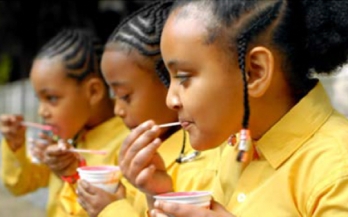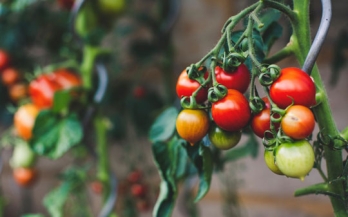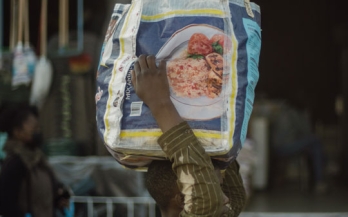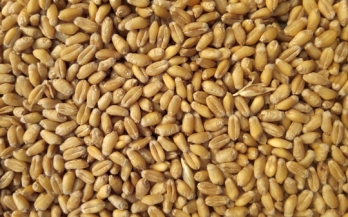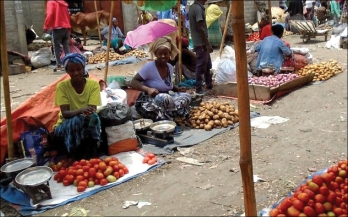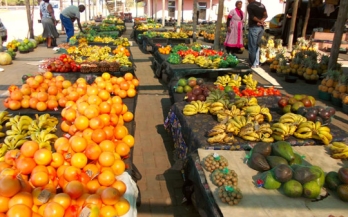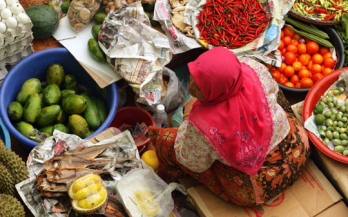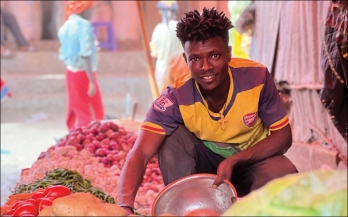In 2018 GAIN Bangladesh began implementing an adolescent nutrition programme titled ‘Nourishing Dreams’. This was designed in partnership with adolescents themselves, and has at its core making a pledge to eat better and work towards improving availability of healthier food in their surroundings.
Despite having more than 10 million dairy cows in Ethiopia, milk productivity and consumption is very low, on average below 2 litres per cow. In 2017, the GAIN Access to Better Dairy partnership was established and supported by Danida. Partners committed to help improve diets of children and mothers, as well as the livelihoods of smallholder farmers, by developing affordable, safe, and nutritious dairy solutions that appeal to children.
In line with our Environment Strategy, we aim to do the following at COP27 - Highlight the need for coordinated and integrated action on climate and nutrition to prevent disastrous increases in food insecurity and malnutrition resulting from climate change
In 2018, GAIN expanded its Postharvest Loss Alliance for Nutrition (PLAN) program to Ethiopia with a focus on reducing loss of tomatoes. Working with local stakeholders, PLAN Ethiopia was designed with two key components.
To make sure Beira’s low-income population can continuously access affordable safe nutritious fresh foods and economic opportunities in traditional urban food markets, GAIN with funding from the government of the Netherlands supported the city of Beira by upgrading three fresh food markets.
Today, more than 125 countries have mandatory food fortification programmes. Food fortification requires a "premix" – a mixture of vitamins and minerals – that can then be added to various staple products.
EatSafe conducted three data collection activities, including interviews, observations, and a randomized experiment, to understand consumers’ and vendors’ food safety knowledge, attitudes, and practices in Hawassa, Ethiopia.
Gallup, Harvard University, and the Global Alliance for Improved Nutrition teamed up to overcome this challenge by initiating the Global Diet Quality Project. Through this project we have created a new approach that enables countries to track diet quality year to year, seasonally, or even more frequently.
The Global Diet Quality Project offers a new approach that enables countries to track diet quality. The project’s Diet Quality Questionnaire (DQQ) allows users to investigate both diet adequacy and diet components that protect against or increase risk of noncommunicable diseases (NCDs)
EatSafe conducted a Story Sourcing activity, or the semi-formal process that uses journalistic techniques to gather stories directly from the audience of interest, to gather stories from traditional food market vendors and consumers in Hawassa, Ethiopia.


